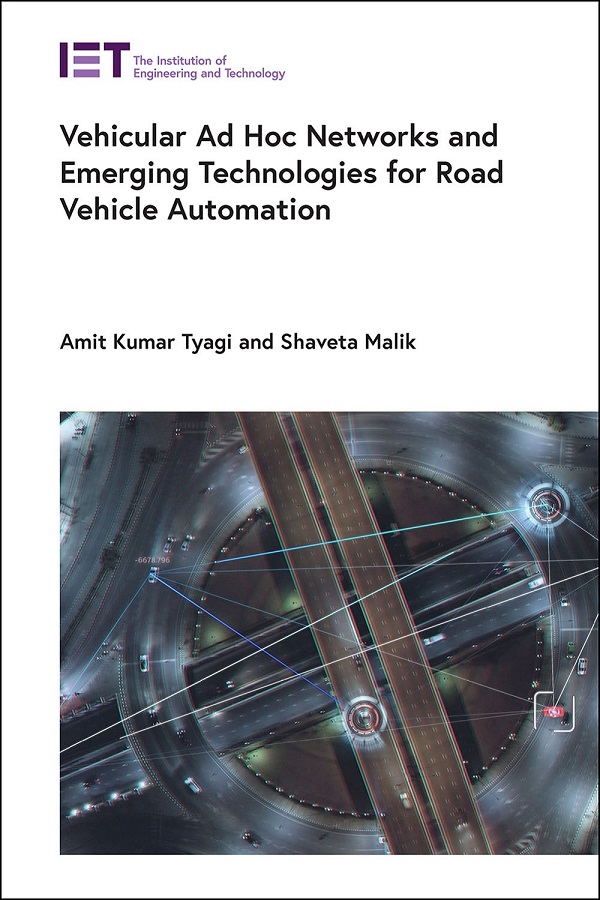- Agricultural Engineering and Technology
- Applied Physics
- Built Environment
- Computing and Networks
- Control, Robotics and Sensors
- Electrical Regulations
- Electromagnetics and Radar
- Energy Engineering
- Healthcare Technologies
- History and Management of Technology
- IET Codes and Guidance
- Manufacturing
- Materials, Circuits and Devices
- Model Forms
- Security
- Telecommunications
- Transportation

Vehicular Ad Hoc Networks and Emerging Technologies for Road Vehicle Automation
by Amit Kumar Tyagi, Shaveta Malik
The automation of road vehicles is still developing, moving towards improved technology, safety, energy and fuel efficiency, comfort, economic growth, and real-world applications. Vehicle connectivity and information exchange over the road is an essential requirement for the future of automated driving. This book is intended to help bridge the gap between theory and applications of autonomous vehicles.
Vehicular Ad Hoc Networks and Emerging Technologies for Road Vehicle Automation covers autonomous road vehicles and systems, with a particular focus on vehicular ad-hoc networks (VANETs). VANETs are a key part of the intelligent transport systems framework. They are created by applying the principles of mobile ad-hoc networks to vehicles; that is, the spontaneous creation of a wireless network of mobile devices based on inter-vehicle communication. Coverage also includes further aspects of autonomous road vehicles, including hybrid vehicles, autonomous intelligent vehicles, and autonomous decentralized systems (ADS).
The book is essential reading for researchers and advanced students from academia, industry and government working on the automation of road vehicles. Additionally, it is a helpful resource for students, researchers and newcomers to the field; providing an in-depth understanding of autonomous road vehicles, their internal structure, types, and fundamental principles, helping to inform and direct their research, and identify challenging areas and problems where further investigations are needed.
About the Author
Amit Kumar Tyagi is a senior assistant professor (grade-I) and senior researcher at the School of Computer Science and Engineering, Vellore Institute of Technology, Chennai, Tamilandu India. His current research focuses on machine learning with big data, blockchain technology, data science, cyber physical systems, smart and secure computing and privacy. He has contributed to several projects such as “AARIN” and “P3-Block”, addressing some of the open issues related to privacy breaches in vehicular applications.
Shaveta Malik is an associate professor in the Computer Engineering Department at Terna Engineering College, University of Mumbai, India, where she has more than 12 years of work experience. She received her PhD from Lingaya's University, Faridabad, India. Her research areas focus on image processing, machine learning, deep learning, and artificial intelligence. She has published number of patents related to machine learning.
Publication Year: 2022
Pages: 497
ISBN-13: 978-1-83953-428-7
Format: HBK
